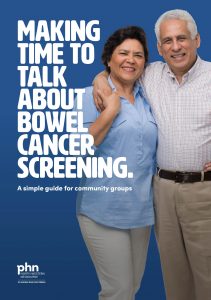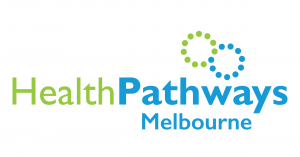Communities in Brimbank and Wyndham were engaged to identify barriers to cancer screening and prioritise and co-design intensive community-based activities to improve cancer screening rates. Community members weren’t just involved in the design – they helped deliver the program, boosting engagement and breaking down barriers to testing.
This project, led by NWMPHN, in partnership with Victorian Aboriginal Community Controlled Health Organisation and Cancer Council Victoria, focused on increasing community participation in bowel, cervical and breast cancer screening programs.
Learn more about the project in the NWMPHN region.
Learn more about the project in other Victorian PHNs.
Making time to talk about bowel cancer screening: A guide for community groups
 Created in 2020 as part of the project, this guide aims to help local communities talk about the importance of bowel cancer screening, and share the message with friends, families and networks. Read our news story and find out how you can help share the guide.
Created in 2020 as part of the project, this guide aims to help local communities talk about the importance of bowel cancer screening, and share the message with friends, families and networks. Read our news story and find out how you can help share the guide.
Resources
Local cancer screening community profile













